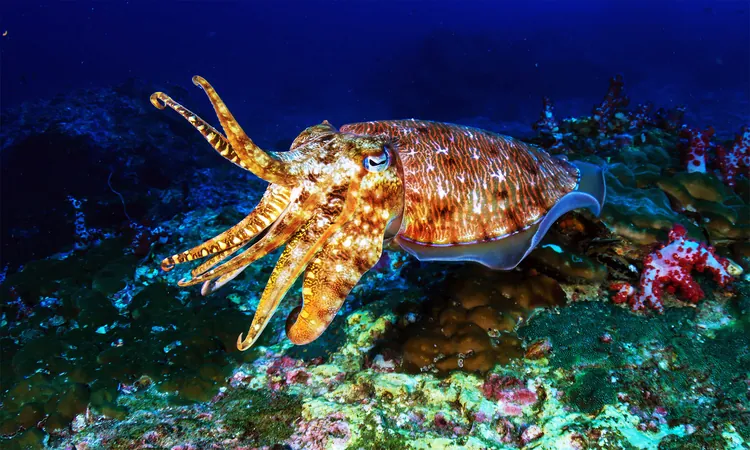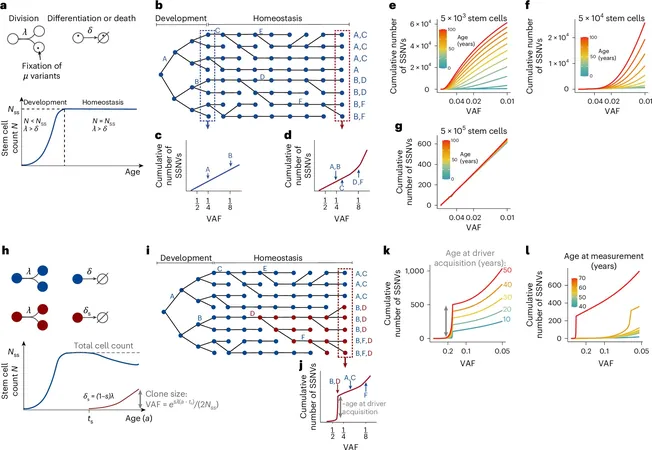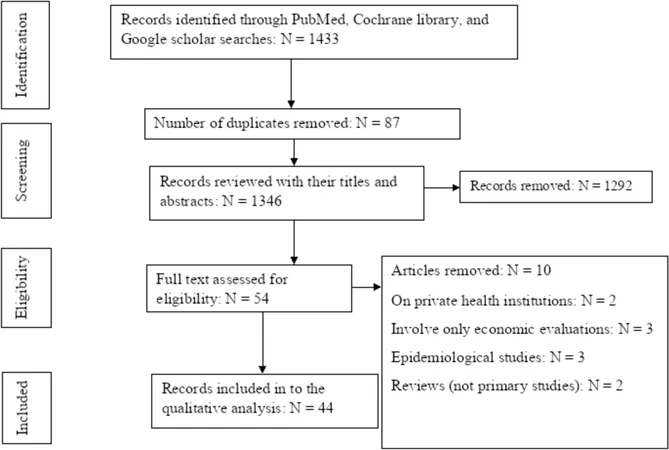
Cuttlefish Pass Kid's Marshmallow Test with Flying Colors! Here’s What Scientists Discovered
2025-05-22
Author: Daniel
Cuttlefish: Masters of Patience?
Waiting is universally tough—whether it’s a child yearning for a cookie or a cunning cuttlefish poised above its next meal. But what if this struggle reveals a deeper intelligence? Recent findings suggest that cuttlefish can not only wait but can do so with a strategic mindset akin to some of the smartest animals on the planet.
Unveiling the Marshmallow Test for Marine Life
In a groundbreaking study, scientists have turned the classic ‘Marshmallow Test’ on its head, diving underwater to put these soft-bodied hunters to the test. Cuttlefish were presented with a piece of shrimp right away or a tantalizing live grass shrimp if they could delay their gratification. These clever creatures displayed not just patience but remarkable brainpower, pausing from 50 to 130 seconds to snag their gourmet prize!
What Makes Them So Smart?
The study, led by Alexandra Schnell from the University of Cambridge, highlights a fascinating link: those cuttlefish that waited the longest were also the quickest learners in other tasks. This raises the intriguing possibility that self-control may be tied to intelligence—a connection previously only established in primates. The ability to adapt and learn appears to correlate with their patience, giving us a new perspective on cognitive evolution across species.
Why Wait? The Survival Strategy of Cuttlefish
So why have these animals evolved this knack for waiting? Cuttlefish often camouflage themselves, making them vulnerable during foraging. Their ability to delay gratification could be a sophisticated survival technique, allowing them to maximize energy intake while minimizing risk from predators lurking nearby. In a world where every movement can attract danger, waiting for the best meal might just be a life-saving strategy.
Intelligence Redefined: Beyond the Brain
Cuttlefish now join the ranks of octopuses and squids as remarkable problem-solvers in the animal kingdom. This suggests that intelligence isn’t solely defined by brain size; instead, it may emerge from various evolutionary responses to environmental pressures. Such findings challenge our understanding of cognitive abilities and hint at a shared evolutionary strategy among diverse life forms.
A Universal Skill: The Underlying Thread of Patience
The discovery of cuttlefish demonstrating self-control opens the door to fresh inquiries about the evolution of intelligence across different lineages—spanning back over 500 million years. What we’re observing is not just a simple act of waiting; it’s a complex, strategic decision-making process that reflects a fundamental survival skill ingrained deeply in the tapestry of life.
The full study was published in the prestigious journal *Proceedings of the Royal Society B*, inviting us all to reconsider what we know about intelligence and patience in our world.





 Brasil (PT)
Brasil (PT)
 Canada (EN)
Canada (EN)
 Chile (ES)
Chile (ES)
 Česko (CS)
Česko (CS)
 대한민국 (KO)
대한민국 (KO)
 España (ES)
España (ES)
 France (FR)
France (FR)
 Hong Kong (EN)
Hong Kong (EN)
 Italia (IT)
Italia (IT)
 日本 (JA)
日本 (JA)
 Magyarország (HU)
Magyarország (HU)
 Norge (NO)
Norge (NO)
 Polska (PL)
Polska (PL)
 Schweiz (DE)
Schweiz (DE)
 Singapore (EN)
Singapore (EN)
 Sverige (SV)
Sverige (SV)
 Suomi (FI)
Suomi (FI)
 Türkiye (TR)
Türkiye (TR)
 الإمارات العربية المتحدة (AR)
الإمارات العربية المتحدة (AR)